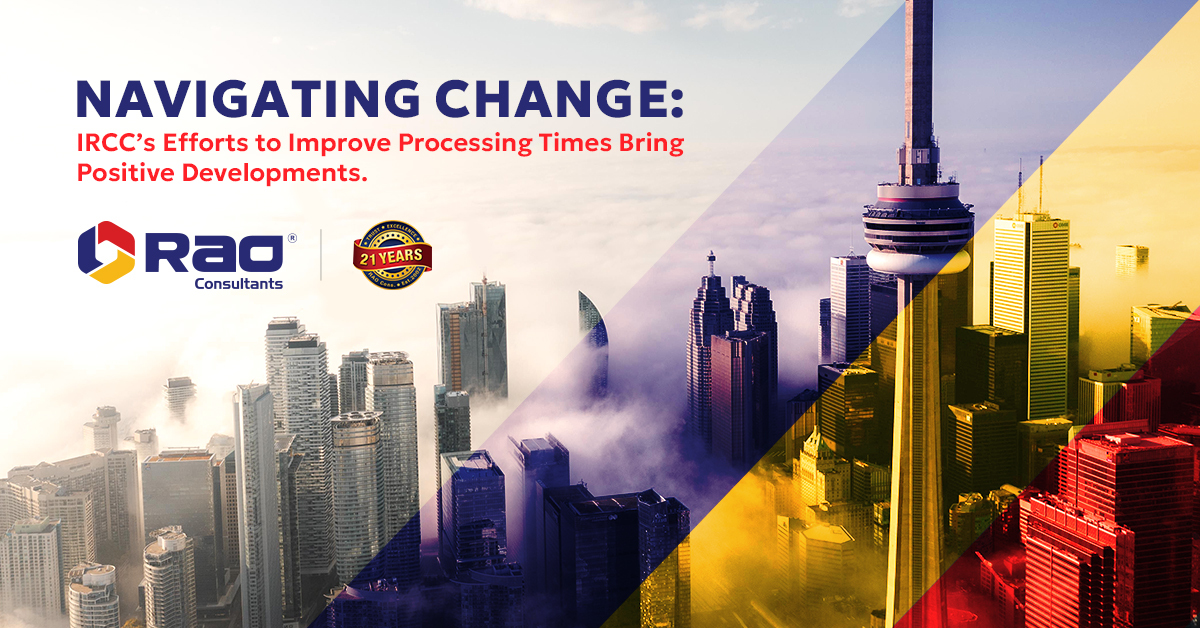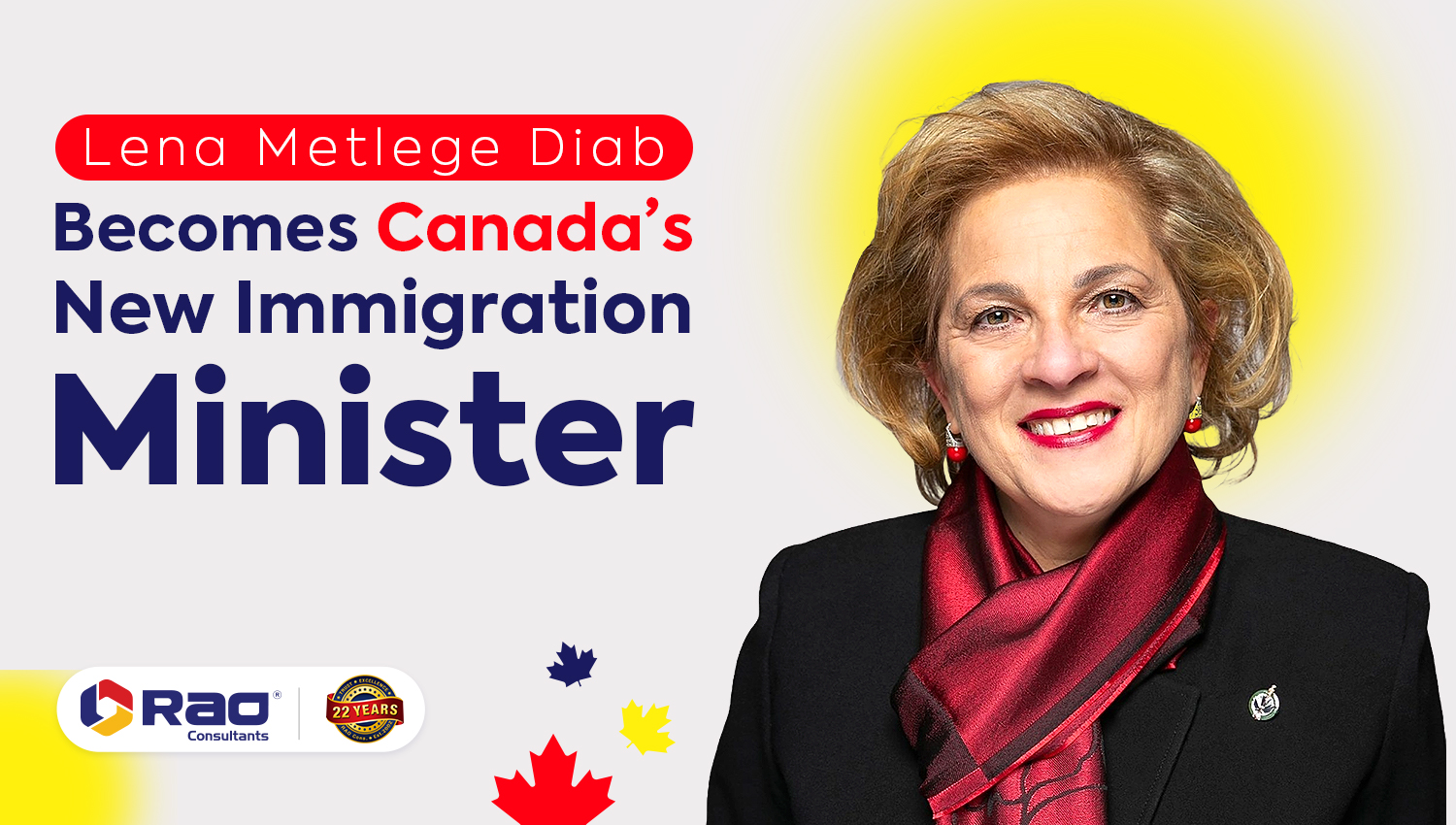News


admin
November 24, 2023
Navigating Change: IRCC’s Efforts to Improve Processing Times Bring Positive Developments.
Something big is happening in Canadian immigration! The Immigration, Refugees, and Citizenship Canada (IRCC) made a bold move that’s got everyone talking. What’s all the buzz about? Let’s dive in and discover why this change isn’t just a shake-up—it’s an invitation to explore fresh opportunities for anyone dreaming of life in Canada.
In a groundbreaking move, the Immigration, Refugees, and Citizenship Canada (IRCC) has set the stage for a transformative shift in the landscape of Canadian immigration, calling it “An Immigration System for Canada’s Future”. This initiative aims to clear the existing backlog of applications and provide a smoother journey for those wishing to immigrate to Canada. Simply put, it’s a big step towards making the immigration process more efficient and user-friendly.
IRCC Aligning Application Intake with Available Admission Spaces.
The plan? A thoughtful realignment of application intake with the spaces available for admission. It’s not just a bureaucratic manoeuvre; it’s a strategic move to curb those frustratingly long waits that applicants often endure when the demand for a program surpasses the available spaces.
IRCC’s Response to Immigration Challenges: Examining Current Backlogs and Strategies for Improvement
The Parents and Grandparents Program (PGP) is currently grappling with a significant backlog of applications, stretching back three years to the beginning of the pandemic. Despite challenges posed by border closures, travel restrictions, and temporary office closures, the Immigration, Refugees, and Citizenship Canada (IRCC) continued accepting applications throughout the pandemic.
The ongoing backlog issue is common to the PGP; many programs, including the Provincial Nominee Program (PNP), face limitations on the number of applications accepted by IRCC. Temporary resident programs, such as work or study permits and visitor visas, have been significantly impacted, leading to delays in processing.
As of 2023, nearly 100,000 individuals are in the inventory for the PGP, with IRCC still working through the 2020 pool of applicants.
In response to these challenges, IRCC is implementing strategies outlined in its recent Strategy to improve processing times. In line with Canada’s Auditor General (OAG) recommendations, IRCC is working towards creating achievable service standards for all permanent residency programs. The department also aims to evaluate backlogged applications and prioritise finalising older cases.
Leveraging Technology for Enhanced Efficiency.
To enhance efficiency, IRCC plans to leverage digital tools and Advanced Analytics, automating routine tasks and allowing officers to focus on urgent or complex applications. These tools will assist in sorting applications by priority, identifying potential processing delays, and automating routine tasks.
This automation will free immigration officers to focus on more complex cases, further expediting the process. This approach has already been initiated, with increased use of Advanced Analytics in processing Post-Graduation Work Permits (PGWPs) and Work Permit Extensions.
Immigration Levels Plan 2024-2026.
The latest plan, unveiled on November 1st, charts Canada’s admission goals, aiming for 485,000 permanent residents in 2024 and 500,000 annually in 2025 and 2026. Minister Marc Miller highlights sustainable population growth in the plan by emphasising economic and workforce strengthening. While permanent resident programs adhere to application caps, temporary resident programs like study permits need such limits, potentially causing processing delays. Minister Miller opposes caps on study permits, underscoring Canada’s openness to international students.
Addressing the Backlog and Managing Expectations
Despite the current challenges, IRCC remains committed to processing 80% of all applications within service standards. While backlogs persist, ongoing efforts seek to streamline the application intake process, ensuring a more responsive and efficient immigration system.
Message to Immigration Aspirants
IRCC’s efforts to improve processing times and streamline the immigration process are positive developments for immigration aspirants. These measures aim to provide a more efficient and predictable experience for those seeking to immigrate to Canada. While processing times may still vary, IRCC’s commitment to continuous improvement and its utilisation of advanced technologies bode well for the future of Canadian immigration.
Let Rao Consultants be your compass in the dynamic realm of Canadian immigration. Seize the opportunities outlined in IRCC’s strategic changes with personalised guidance from our experts. Connect with us now and embark on your pathway to Canadian residency, where every step is crafted for success! Feel free to reach us at +91 7573 003 929, (079) 67 444 444 , +91 757-300-8888, or [email protected]
You May Also Like

Canada’s Proposed Citizenship Bill: A Landmark Opportunity for the Global Indian Diaspora
Canada is once again reaffirming its image as one of the world’s most inclusive and forward-thinking nations with a historic new bill—Bill C-3, introduced on June 5, 2025—that seeks to restore and expand citizenship rights, especially for those known as the “Lost Canadians.” This reform, if passed, is expected to have a far-reaching impact, particularly […]
Read More
Lena Metlege Diab Becomes Canada’s New Immigration Minister
Lena Metlege Diab has been appointed as Canada’s new Minister of Immigration, Refugees and Citizenship. The announcement was made on May 13, 2025, as part of a cabinet change by Prime Minister Mark Carney. Diab takes over from Rachel Bendayan, who briefly held the role after Marc Miller. This new position puts Diab in charge […]
Read More
Anita Anand Becomes Canada’s First Hindu Woman Foreign Minister: A Big Step for India-Canada Relations
Anita Anand has made history by becoming Canada’s new Minister of Foreign Affairs. She is the first Hindu woman to take this important role, showing how Canada is becoming more diverse and inclusive. Her appointment could also help improve the relationship between India and Canada. Her Journey in Politics Before entering politics, Anita Anand was […]
Read More